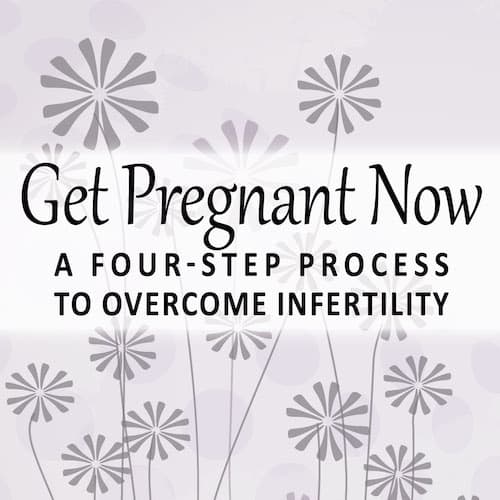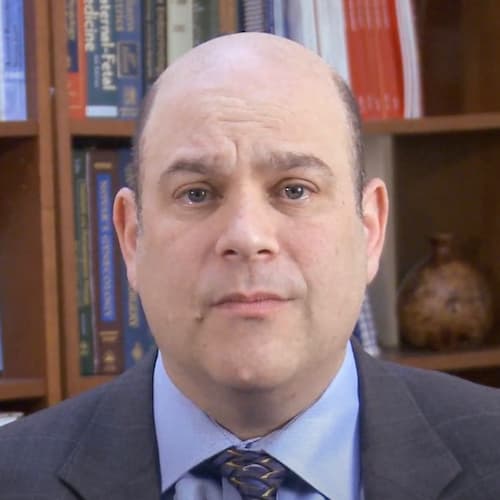According to the media, you can "have it all" and be "perfect" – but at a price
Often young women get the message that they can “have it all,” and that they can delay having children indefinitely while they pursue their career and look for their perfect mate. Often, people use the existence of fertility treatments themselves as evidence that they can just get a little help when the time is perfect to have a child.
A major study recently showed this “false-fertility security net” lets many women think they can wait indefinitely and just let science take care of it when the time is right. But it’s not always that simple. What’s worse the smartest career women who get all the right information often first start to worry about their age-fertility connection when its already far too late.
On the other hand, women often get the message that they are not “perfect.” The physical standards that women are expected to meet are so unrealistic and so punishing, that often women starve and exercise themselves into infertility. Ironically, they look fitter and even younger sometimes because they are so muscular and thin. But too rigorous a physical regimen, and too nutrient and calorie lacking a diet, and women who look young may be experiencing infertility as a result of social pressure!
Like the elite athletes, triathletes, ballet dancers, and professional sports celebrities who we have treated—intense exercise and diet frequently forces the reproductive system to shut down. It’s the body’s way of responding to extreme physical stress. Any living creature fleeing for its life or starving would be unsafe to be pregnant.
Despite these mixed messages implying that age itself doesn’t matter when it comes to having children, women are very afraid about the impact of their age on their fertility. It’s in the top five fears of the patients we see. Many women are so scared about the answer that they avoid getting the help they need to get pregnant. They know the fertility clock keeps ticking, but they are paralyzed by the fear that they’ve already waited too long to get help and now it’s too late.
The irony is, age is sometimes not even a factor in a woman’s infertility at all.
Some are overjoyed when they find out age wasn’t even their cause of not getting pregnant! Worse yet are those couples who have a nagging feeling that their clock is ticking but those around them, especially their general ob-gyn and well-meaning friends and parents, keep telling them to just relax, plenty of people their age get pregnant.
So how can you tell if age is a factor or not?
Here’s the solution to your problem: age AND your fertility.
What really matters when it comes to age and fertility is not the statistics, but YOU. You need to figure out how age is impacting your fertility (or not) and what to do about it.
Why is age a bigger issue for fertility than ever before?
Before we can talk about you, you need to get a basic background of age and fertility statistics:
- Contraception is readily available.
- More women are in the work force.
- Women get married at much later ages.
- The divorce rate remains high.
- Married couples are delaying pregnancy until they are more financially secure.
- The rates of sexually transmitted diseases, obesity, smoking, and other factors that impair fertility have also skyrocketed.
In fact extensive interviews with women who voluntarily delayed pregnancy only to find they were staring down the barrel of infertility found purposeful delays were often due to the woman’s uncertainty about her personal or financial relationships. They wanted to wait for the “right time in their life” when they felt stable enough. What’s more they wanted a chance to experience all the excitement and opportunities of life and to reach the heights of their careers. They also needed to secure their financial well-being and face the uncertainties of relationships in times of high divorce.
Many women don’t realize that their fertility begins to decline in their late 20s or early 30s!
Hollywood and celebrities have us convinced that anyone can get pregnant into their 50s. After all Cosmo and Vogue keeps telling my patients “40 is the new 30.” Maybe for Cosmo yes but for your ovaries…No.
“But Doctor– I’m healthy, I work out every day, have 4% body fat, can run a marathon, and at peak health. I am younger than my birthdate says I am…”
Remember my patient Nadia? How you look and your fitness can’t tell you about your fertility!
The egg number shocker!
At birth a woman has about 3 million eggs in her body. Yes, that sounds like a safe huge number! But by the time of puberty at her first cycle only 300,000 are left! What happened to the rest? Even though a woman only ovulates a single egg each month she actually loses THOUSANDS of eggs each and every month. Ultimately only about 300 will ever make it to be released and have a chance of pregnancy and all the rest simply are lost.
What's the risk of infertility by age?
Here’s some data from a landmark study about age and fertility:
- 20 – 24 years old. 7% of women will be infertile
- 25 – 29 years old. 9% of women will be infertile
- 30 – 34 years old. 15% of women will be infertile
- 35 – 39 years old. 22% of women will be infertile
- 40 – 44 years old. 29% of women will be infertile
Egg Quality and Egg Quantity
This is the double whammy of age and fertility. Not only does the number decline with age but the quality of the eggs plummets as well. What’s egg quality? More than once patients have asked us “are my eggs spoiled?” Eggs contain precious chromosomes which have the genetic DNA in them.
Research by many, including Dr. Palter’s group when he was at Yale University, showed the two most shocking age-fertility time bombs. First, the best eggs a woman has are released early in her life and as she gets older many of the remaining eggs were already damaged before birth!
The second time bomb is, over time those precious sleeping eggs accumulate new damage. The end result is by age 35 about half the eggs no longer can work and by age 40 only 1 in 5 eggs works (can create a healthy baby). That means the average 40 year old really only has 2 chances a year of success without treatment!
That’s why older eggs also raise the risk for miscarriage and genetic abnormalities like Down’s syndrome.
In a 20 year old only about 10% of pregnancies miscarry. In a 35 year old the number has doubled to almost 20%. In a 40 year old the risk jumps to 35% and over age 45 more than half of all pregnancies will miscarry due to damaged eggs.
You are more than just a birthday?
Now realize these are average numbers only to help you get educated to make your own best decisions. YOUR exact age number may be better or worse than these averages. Like we tell the couples we help – you are more than just your birthday – that number is a starting point.
But how can you tell if age is a factor? Here is the secret…your True Ovarian Age.
How to beat age-based infertility?
 The impact of age on fertility is a bigger issue now than ever before. Especially in New York and on Long Island it is a major issue for patients. Why? Because approximately 20% of women wait until after age 35 to begin their families.
The impact of age on fertility is a bigger issue now than ever before. Especially in New York and on Long Island it is a major issue for patients. Why? Because approximately 20% of women wait until after age 35 to begin their families.


